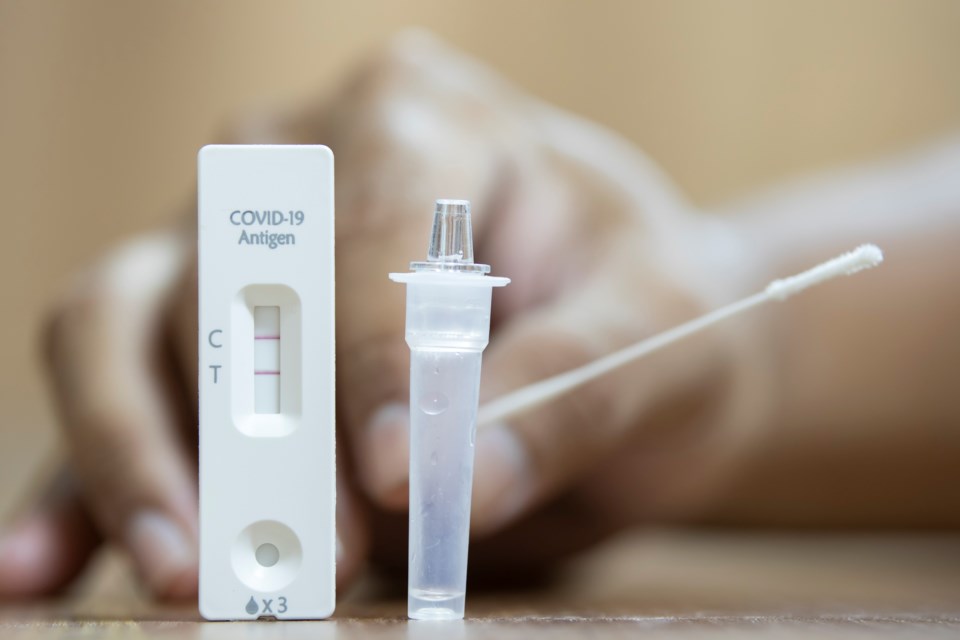REGINA — The Saskatchewan Government confirmed that an influx of at-home rapid test kits will be available to the public beginning next week, to bolster the province’s surveillance of asymptomatic COVID-19 cases.
Marlo Pritchard, COVID-19 response lead at the Provincial Emergency Operations Centre, confirmed that the province has secured an agreement with the federal government to continue to provide rapid test kits through Saskatchewan’s Test to Protect Program.
Beginning Oct. 18, 1.3 million kits will be distributed at no cost to the general public through select fire halls, chambers of commerce and Saskatchewan Health Authority testing centres.
An additional 360,000 tests will also be heading to First Nations communities, through a partnership with Indigenous Services Canada.
Schools will receive another 720,000 tests, and congregate living facilities, healthcare workers and businesses signed up for the Test to Protect program will also get an allocation.
Kits will be offered on a first-come first-serve basis, said public health, with a limit of one kit per household.
A request has already been made to the federal government to receive 4 million test kits per month moving forward, an increase from the original request of 1 million made last week.
Pritchard said that this request has been approved for November, and requests for a December allocation are pending.
He reminded residents that the at-home tests are intended for quick testing if COVID-19 symptoms appear, and rapid test results cannot be used for proof of vaccination requirements in the province.
“While these tests do not diagnose COVID-19, they're effective in screening people who may be COVID positive, but are asymptomatic and require further investigation,” said Pritchard.
Pritchard said that the kits are typically packaged in groups of five, making supply likely to run out quickly, and encouraged interested residents to jump on the opportunity.




